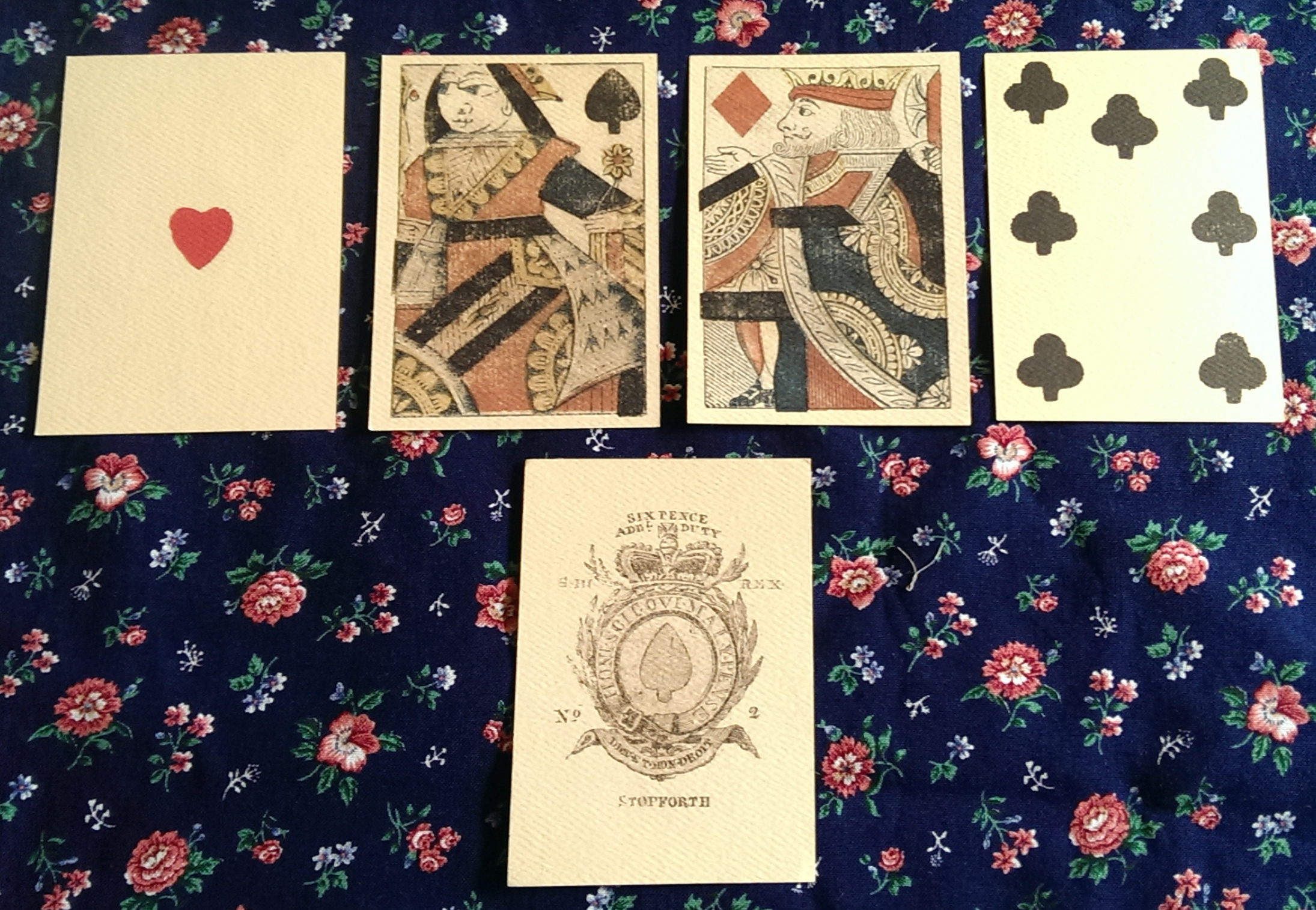
This site focuses on games played in the American Colonies during the 17th and 18th centuries, up to the end of the American Revolution. The colonists had come to America from different areas of Europe for a variety of reasons. Some were adventurers, seeking their fortune or hoping to make a name for themselves as explorers. Some were trying to escape religious persecution or political discord in their home countries. Others felt compelled to bring Christianity to the peoples of the "New World" (as they called it) for the glory of God and the salvation of souls. Still others were just hoping to make a fresh start in their lives in a new place that might offer more opportunities than the ones they had back home. Many people came for all of the above reasons, in some order. At first glance, people in the different colonies didn't have much in common. They had come from different places, had different religions and social backgrounds and gave their colonies their own cultures and tastes. Not everyone who came meant to stay in America, but those who put down permanent roots provided the basis for what is now the United States of America.
The very first people to live in America were, of course, the people we now call Native Americans, who arrived in the Americas thousands of years before anyone else, establishing their own tribes and cultures long before anyone arrived from Europe (Warner 15). The first Europeans who arrived to establish permanent colonies were the Spanish. In 1565, they founded the city of St. Augustine in what is now Florida. St. Augustine is oldest city in the United States. They were hoping to find gold and gems and also wanted to convert the Native Americans to Christianity (Warner 16-17). In 1607, the English established Jamestown in Virginia. Many of them were from noble families, hoping to make their fortunes by searching for gold. In those days, only first-born sons could inherit their father's estates, so younger sons had to find other ways to provide for themselves (Warner 17). Another group of people from England, the Pilgrims, arrived in 1620 in what is now Plymouth, Massachusetts. They were specifically looking for a place where they could practice their religion without government interference (Warner 17-19). In the 1620s, Holland established colonies in what is now Albany, New York, and Manhattan Island in order to trade with Native Americans and other colonists (Warner 19-20).
Over the years, other groups arrived from different countries including France, Portugal, and Sweden. These people were explorers, exiles, and settlers (Warner 16, 20). New colonies were formed, and towns and cities grew as more people came. By the time the American Revolution began in 1775, England's small colonies had turned into thirteen large ones with over two million people living there (Warner 24).
In the early days of the colonies, life was hard, and the colonists spent most of their time working hard to ensure their survival. Entertainment was a low priority. Later, as the colonies grew and life became easier, the colonists found more time to enjoy themselves (Lizon 9). As far as games go, there were some classics which could be found throughout the colonies, but some games which were welcome in certain colonies weren't welcome in others. For example, the Puritans of New England had laws against gambling games. They also generally didn't tolerate games that were considered to be irreverent, like the card game called Matrimony, which they believed made a mockery of marriage (Daniels 180-181). However, gambling games were popular with men living in Virginia and were played openly both in private homes and public taverns (Carson 19).
Board Games
Some of the games played in Colonial America are from earlier periods, like Chess and Checkers, which was known as Checks (Gourley 9). The earliest colonists used kernels of corn when playing Checkers. Children used corn kernels for playing other games as well (Lizon 54).
Backgammon was considered a game for the elite. During the late 18th century, it was popular with gentlemen in New England, but it was not popular with women (Daniels 181).
People in Colonial America also enjoyed Nine Men's Morris, another game played in earlier times (Lizon 54).
Card Games
Card games became more popular in England during the 17th century, partly because noblemen who had fled England during the English Civil War had developed a taste for them while living on the Continent (Daniels 177). The first Hoyle book, giving the rules for 20 card games, was written in 1743 (Daniels 179). Interest in card games spread to all levels of society, and even Puritans began to join in the fun (Daniels 177).
Puritans in the American colonies were more troubled by the popularity of card games than Puritans in England (Daniels 178). The gambling aspects of card games were troubling for the Puritans, although time-wasting was even more of a concern (Daniels 176). However, none of the Puritan groups outlawed the games, and card games became popular throughout Colonial America, too. Cards were inexpensive to buy, and games did not have to involve gambling. In fact, they could be seen as encouraging basic math skills. Of course, there were still people who were concerned about playing cards, believing them to be a bad influence on children (Daniels 178).
Other Games
Many of the games in this section were played by children, but some of them were enjoyed by adults as well. Blindman's Buff is also included in the Medieval section, but I put it here as well because the version here was popular during the Colonial era.
Other games that were played by Colonial children include tag and hide-and-seek, which they called "I Spy" (Warner 99). (The I Spy game that we know today is different.) They also played Ring-Around-a-Rosie and Frog in the Middle (Gourley 8). Another of their games, Hot Cockles, was an old one from England related to Blindman's Buff (Lizon 53).
Colonial children also played Hopscotch, using rules very similar to the ones kids use today. However, they referred to the game as "Scotch Hoppers" instead of Hopscotch (Lizon 53).

